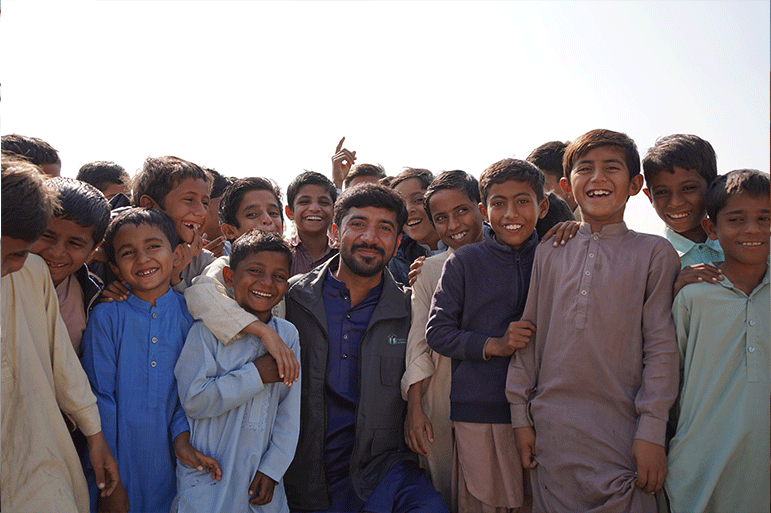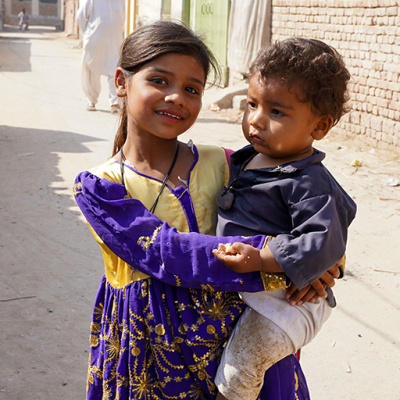Poverty remains one of Pakistan’s greatest challenges, affecting millions of families and limiting the nation’s growth potential. From the Global Education Monitoring (GEM) report, noting that poverty is one of the main obstacles to access to quality education and that inclusive education is foundational to breaking that cycle.
Despite government initiatives, millions of children remain out of school. Poverty, inadequate infrastructure, and cultural barriers remain major obstacles, but education support programs are bringing hope and change.
This article explores the role of education support programs in Pakistan, successful models, and how individuals and organizations can take action to uplift underprivileged children.
Poverty and Education: The Missing Link
Around 24% of Pakistan’s population lives below the national poverty line, according to the World Bank. Rural communities are impacted most, where schools are often under-resourced or completely absent. In these areas, families struggling to meet basic needs frequently prioritize child labor over learning, with girls disproportionately affected. (World Bank Poverty Data – Pakistan)
Yet research consistently shows that access to education for poor children has a direct impact on economic growth. Education opens doors to employment, enhances health outcomes, and fosters civic engagement. In short, supporting a child’s education in Pakistan doesn’t just change one life—it strengthens entire communities.
Education Support Programs Making a Difference
In recent years, various organizations have stepped in to fill gaps left by public education. The Pakistan Children Relief education initiative, alongside other nonprofits, has launched innovative approaches to reach marginalized communities.
1. Scholarships and Financial Support
By providing tuition fees, uniforms, and books, scholarships reduce the financial burden on families. This kind of aid allows parents to keep their children in school instead of pushing them into labor. Donors who support a child’s education in Pakistan ensure consistent learning opportunities.
2. Basic Learning Centers in Pakistan
For children in rural and underprivileged communities, basic learning centers in Pakistan provide flexible and accessible schooling. These centers are especially effective in addressing barriers such as long distances to formal schools.
3. School Supplies Donation in Pakistan
Something as simple as a backpack, notebooks, or stationery can transform a child’s ability to learn. Many education support programs organize school supplies donation in Pakistan, ensuring no child is left behind because they lack the tools to study.
4. Teacher Training and Community Involvement
Quality education for underprivileged children depends on skilled educators. Programs that invest in teacher training and engage local communities see stronger results. Parents become advocates, and children are more likely to stay in school.
5. Vocational and Skills Training
For older children and youth, skill development programs prepare them for employment. This approach not only reduces poverty but also boosts Pakistan’s local economies by creating a skilled workforce.
Why Donating to Education Matters
Every contribution counts. When individuals or corporations donate education for children in Pakistan, they provide more than books or tuition; they provide a pathway out of poverty.
Ways to give include:
- Sponsoring a child’s education.
- Funding new classrooms or basic learning centers.
- Supporting teacher training initiatives.
- Contributing to school supplies drives.
Long-Term Benefits of Education
The impact of education goes far beyond academics:
- Health Improvements: Educated children grow into adults who make better health and nutrition choices, reducing preventable diseases.
- Generational Change: Parents who attend school are more likely to educate their children, breaking cycles of illiteracy.
- Civic Participation: Education encourages people to vote, advocate, and participate in building stronger communities.
Challenges Ahead
Despite progress, challenges remain. Many schools in rural areas still lack basic infrastructure, sometimes even roofs or clean drinking water. Cultural barriers, particularly for girls, persist. And political and economic instability often shift attention away from education reforms.
Overcoming these hurdles requires collaboration among government, private donors, NGOs, and local communities.
Conclusion:
Education is not just a privilege, it’s a fundamental right and a powerful weapon against poverty. By supporting initiatives like scholarships, school supplies donation in Pakistan, and basic learning centers, we can ensure quality education for underprivileged children becomes a reality.
Organizations such as Pakistan Children Relief are leading the charge, but they can’t do it alone. By choosing to donate education for children in Pakistan, you can directly transform lives, empower communities, and invest in a brighter future for the nation.
Together, we can make education the bridge that lifts Pakistan’s children out of poverty and into opportunity.



